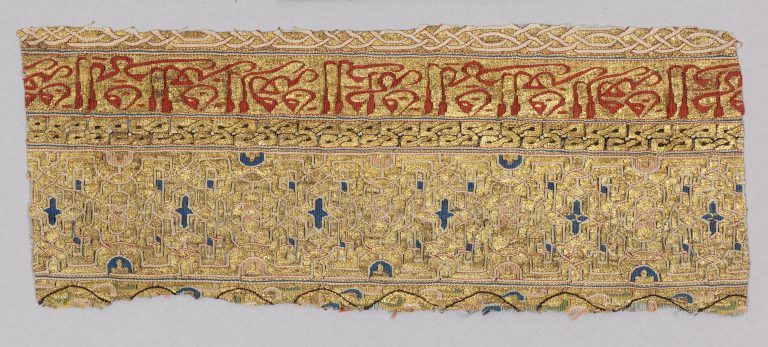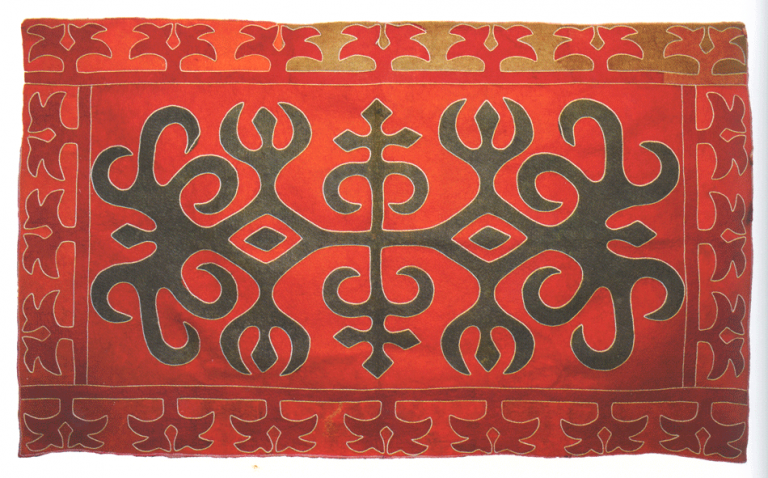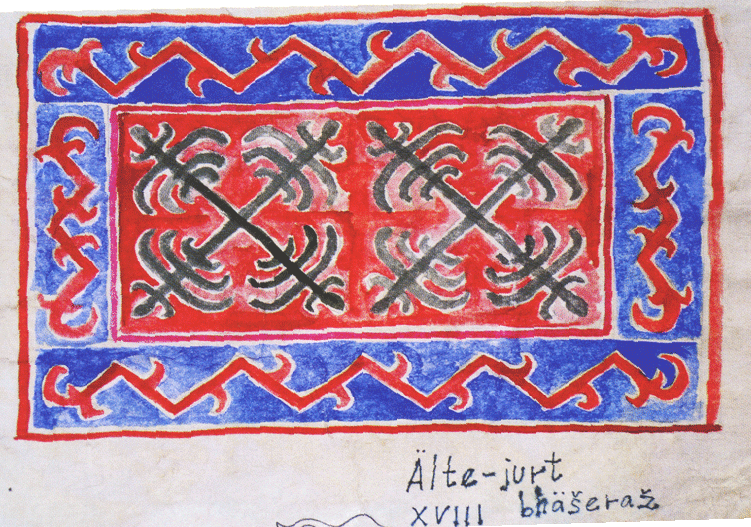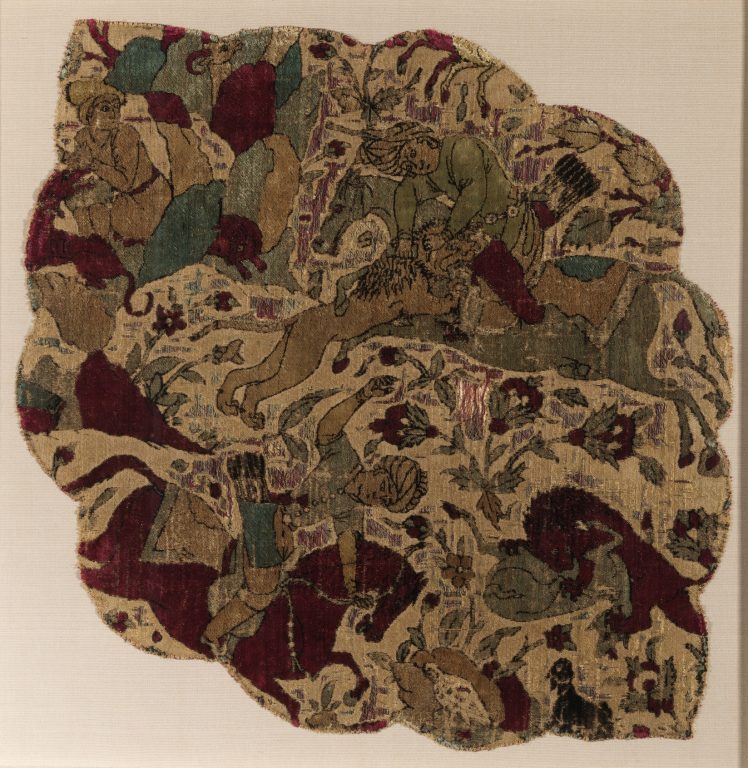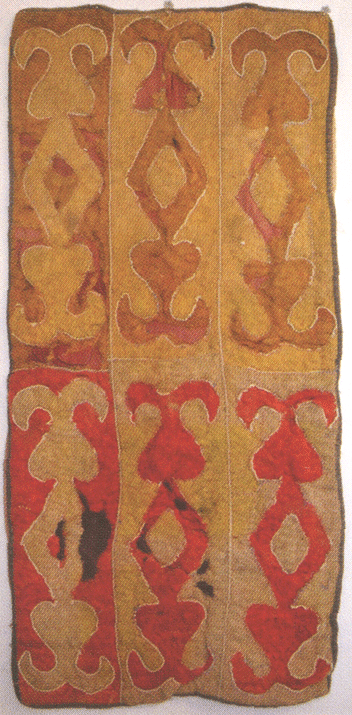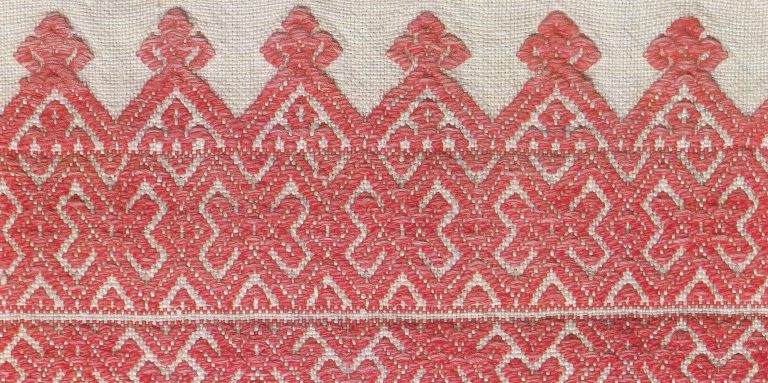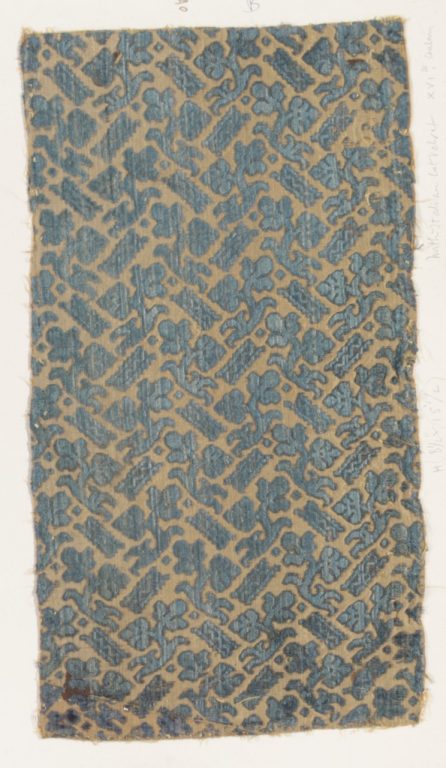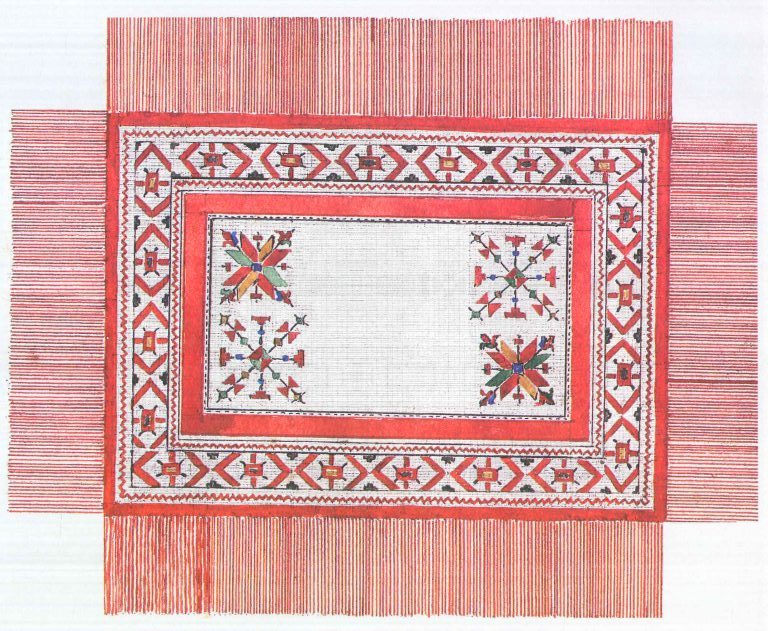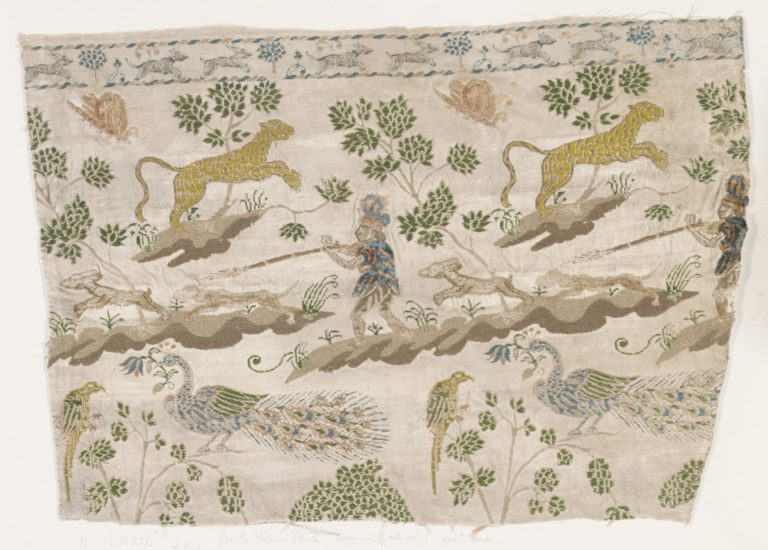
13th century

Spain
Object qualities
-
Objecttextile (towels, carpets, etc.): Fragment
-
Type of arts & crafts
-
MediumSilk, gilt animal substrate around a silk core; tapestry weave
-
SizeTextile: H. 3 1/8 in. (8 cm) W. 8 1/4 in. (21 cm) Mount: H. 7 in. (17.8 cm) W. 12 in. (30.5 cm) D. 1 1/4 in. (3.2 cm)
-
Geography detailsMade in
Spain -
Country today
-
Date13th century
Source of information
-
Type of sourceDatabase “Metropolitan Museum of Art”
-
Fund that the source refers toMetropolitan Museum of Art
Description
-
This brocaded textile was originally applied to a dalmatic of Andalusian manufacture. It belongs to a collection of vestments attributed to the cult of Saint Valerius, who was the bishop of Saragossa from 290 until 315. During the eleventh century his body was transferred to the Cathedral of San Vicente de Roda de Isábena in Huesca (Aragon), from where relics were dispatched to other churches. The textiles were made to venerate the saint, with the dalmatic worn on the occasion of his feast day. This textile fragment has an Arabic inscription in naskhi across the bottom: “Good luck and glory and exaltedness and magnificence”.


